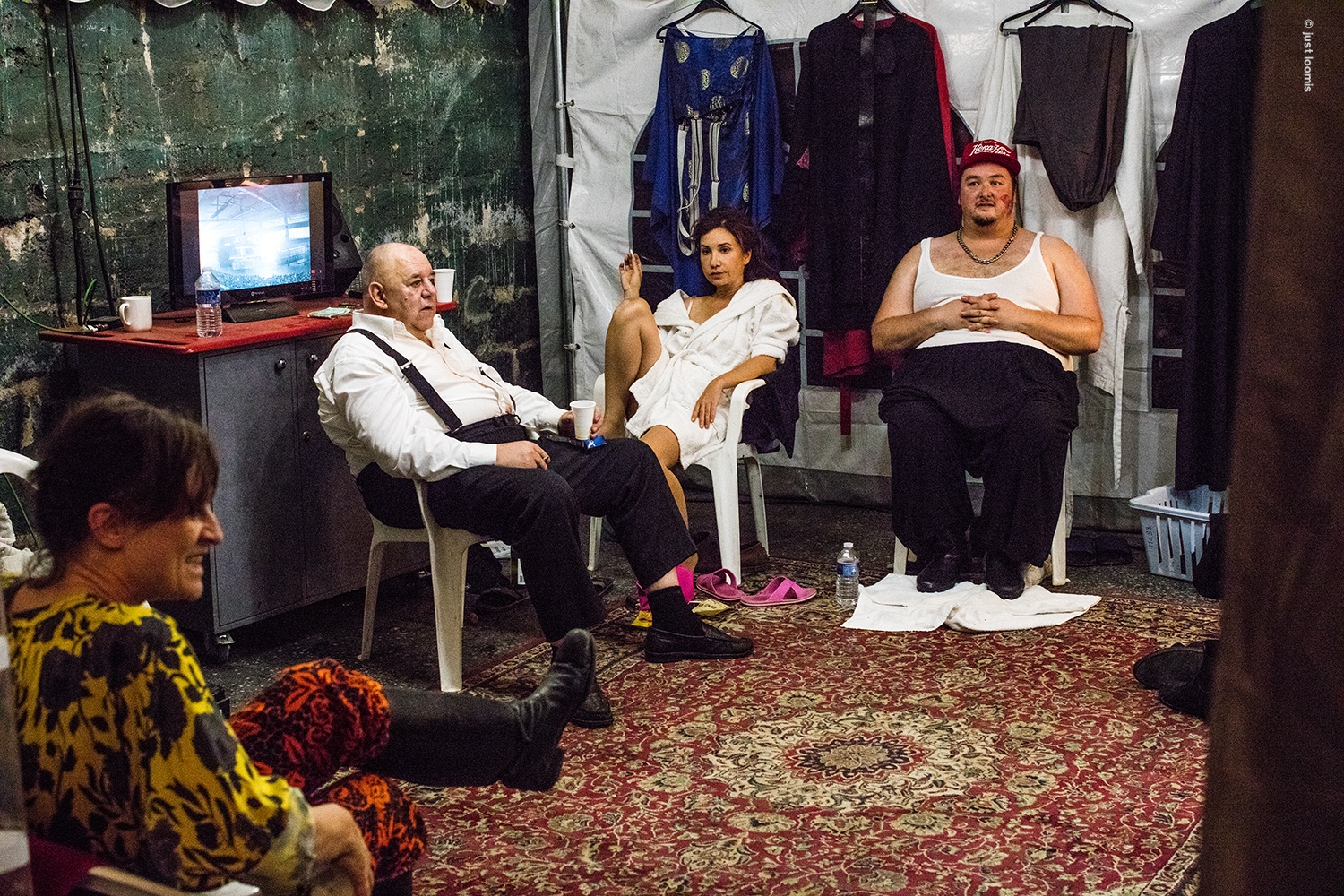


"We’ve reached a pivotal point in life when we cease searching for the ground of being. What would life be without death? Who would still dare to live without the prospect of death? For it’s only the fear of death that makes us want to prolong life into the dreariness of old age."
King Arkel’s castle houses three generations of his family. At an indeterminate time, surrounded by servants, old folk and the rural poor whose low-life presence is merely hinted at and has never been deemed appropriate for proper drama at any time, Arkel lives together with Geneviève, his daughter-in-law and mother of his grandchildren, the half-brothers Pelleas and Golaud, and Golaud’s young son Yniold, whose mother died. Pelleas’ father is seriously ill and confined to his bed in one of the castle’s chambers, which is why Arkel won’t give in to his grandson wishing to depart.
Golaud encounters a stranger in the woods – a young woman named Melisande whom he persuades to stay. With the help of his brother, Golaud obtains his father’s consent to marry Melisande and live with her as his second wife in the castle. Pelleas’ desire to set out into the world is as strong as ever, but Arkel won’t allow him to leave. A deep mutual understanding seems to develop between Melisande and Pelleas, attracting the jealous suspicion of his half-brother Golaud. Golaud keeps a wary eye on the lovers and ultimately kills his brother in a rage. After bearing Golaud a daughter, Melisande dies for no obvious reason.
In 1892 Maurice Maeterlinck, the famous Belgian playwright and essayist with a fondness for meta-level deliberations, wrote the play "Pelléas et Mélisande", in which, in a radical departure from naturalist drama, he did not seek to unravel the mysteries of life. A year later, the piece premiered in Paris to go down in theatre history as the magnum opus of symbolist drama.
Forty years on in 1934 - eighty years ago - Maeterlinck published the essay "Before the Great Silence", which is just one in a succession of philosophical treatises dealing with fundamental issues such as death, the soul, and other mysteries of life – yet also with people’s daily routines. The then seventy-year-old literary Nobel prize winner was under no illusions anymore: "Most people go on living only in order not to die. Yet, alas, has mankind not put up with all the mysteries, the follies and absurdities ascribed to the god of the Jews and the Christians and the Mussulmans for over two thousand years? Why not accepting the inexplicable and mysterious twists of a universe we are only just beginning to explore, in the expectation of a better future? In my youthful drama "Pelléas et Mélisande", Arkel says: ‘If I were God, I’d have compassion on the human heart.’ At my age now, I would rather have Arkel say: ‘If I were God, I should feel ashamed for having created mankind.’
Duration: 2h 15min
With: Hendrik Arnst (Arkel, König von Allemonde), Thorbjörn Björnsson (Pelléas, Enkel Arkels), Jan Czajkowski (Golaud, Enkel Arkels), Yannic Liam Gläser (Der kleine Yniold, Golauds Sohn aus erster Ehe), Marie Goyette (Geneviève, Mutter von Pelléas und Golaud), Lilith Stangenberg (Mélisande) and Nurit Stark (Viridiana)
Artist: Klaus Dobbrick
Director: David Marton
Stage Designer: Christian Friedländer
Costumes: Tabea Braun
Light Design: Henning Streck
Dramaturgy: Anna Heesen
Textfassung von David Marton und Anna Heesen nach „Pelléas und Mélisande“ von Maurice Maeterlinck in der deutschen Übersetzung von Stefan Gross. Unter Verwendung von Auszügen aus „Vor dem großen Schweigen“ von Maurice Maeterlinck.
Ludwig van Beethoven - Klaviersonate Nr. 23 f-Moll op. 57 „Appassionata“
Ludwig van Beethoven - Kantate auf den Tod Kaiser Joseph II. WoO 87
Ludwig van Beethoven - Konzert für Violine D-Dur op. 61
Ludwig van Beethoven - Klaviersonate Nr. 4 Es-Dur op. 7
Ludwig van Beethoven - Klaviersonate Nr. 16 G-Dur op. 31 Nr. 1
Ludwig van Beethoven - Missa solemnis D-Dur op. 123 („Benedictus“)
Ludwig van Beethoven - Klaviersonate Nr. 20 G-Dur op. 49 Nr. 2
Jimmie Rodgers - Secretly
Serge Rezvani - La peau Léon
Marianne Faithful - Ballad of Lucy Jordan
Serge Rezvani - Tout moroses
Ludwig van Beethoven - Klaviersonate Nr. 15 D-Dur op. 28 „Pastorale“
Beach Boys - Don’t Talk
Ludwig van Beethoven - Violinsonate Nr. 3 Es-Dur op. 12 Nr. 3